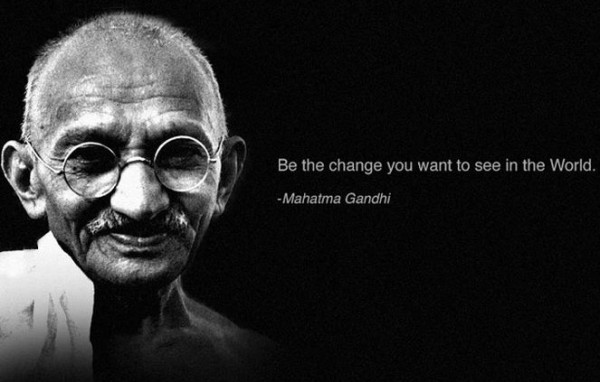
Leadership has been defined as a process through which a person influences and motivates others to get involved in accomplishment of a particular task. This single definition, although universally accepted, fails to define the particular paths and ways of people who are deemed as great leaders. All great leaders had something unique about them and yet they were bound by greatness that helped them to lead masses to innovation and new ideologies. Since the oldest times known to men, masses have been led by efficient leaders. Such men and women have been responsible for ushering their people into a new and more modern world as we know of it now. Although times have changed, the contributions of these great leaders cannot be forgotten and although practices and ways of doing things have changed as well, the ways of these great leaders cannot be overlooked. What made them great might still be applicable in today’s day and age. Here is a look at some of the greatest leaders of all time and what made them great.
Mahatma Gandhi
Mohandas Karamchand Gandhi, better known as Mahatma Gandhi, was born an ordinary boy with a determination to excel at what he did. After completing law from London, he became the most important part of the Indian freedom struggle against the colonial rule. His policy of non-violence and protest through civil disobedience eventually succeeded when he led his country to freedom in 1947. His main characteristics were resilience, knowledge, people-skills, motivational approach and leading by example. Gandhi was also a voracious reader who would read anything from books on financial planning to the holy books of every religion, and had a library containing thousands of books.
George Washington
George Washington, known as the founding father of the United States of America, was the leader of the American Revolution and the first president of US. He was a true visionary whose vision has endured for more than 200 years. What made Washington great was his foresight, vision, strategic planning and his ability to lead people to success.
Abraham Lincoln
The 16th president of the United States is also one of the most well known leaders of all time. He was in office during the American Civil War where he kept the people together and is the only reason that the nation did not break into smaller parts. He also ended slavery in the US by signing the Emancipation Proclamation. His greatest traits were his determination, persistence, beliefs and courage.
Jamsetji Nusserwanji Tata
Indian industrialist Jamsetji Nusserwanji Tata was a visionary and humanist whose business acumen laid the foundations of the Tata empire. His ambitious endeavors laid the foundations for India to become an industrialized powerhouse. Tata’s business ventures today produce textiles, steel, electricity, agricultural equipment, trucks, locomotives, and cement. One of the world’s top philanthropists of the 20th century, he established the Tata Group, wherein 66% of Tata Sons’ equity is held by Tata Trusts, which supports philanthropic work. A businessman who understood his role in society, he elevated the lives of those around him by providing them with a means of livelihood and charity.
Prophet Muhammad
One of the greatest leaders of all time, Prophet Muhammad led to the spread of Islam in and around Arabia. His contribution to Islam was such that it has become the second largest and the fastest growing religion of the world today. He united a chaotic society in the name of morality and humanity and led his people out of severe persecution and mistreatment. He led his people to a number of migrations and successful victories in wars against armies much larger than theirs. His greatest leadership qualities were his courage, leading by example, motivational approach, persistence and decision-making.
Mao Zedong
Mao was the leader of the Chinese Revolution and the founding father of the People’s Republic of China. He successfully endured and repelled the invasion by Japan during the World War II and subsequently transformed the economy of China into one of the major industrialized economies of the world. Because of him, China is a world power and a potent rival to the dominant United States of America.
Nelson Mandela
Nelson Mandela was the first South African president elected in fully democratic elections. Mandela was also the main player in the anti-apartheid movements in the country and served a lengthy prison sentence because of the same. This did not stop Mandela and in fact motivated him to devote his life to uniting his country and he successfully managed to do so after his release from an almost 30 year prison sentence. His main characteristics were his determination, persistence, focus and will.
Julius Caesar
Easily one of the greatest military leaders of all time, Caesar was also one of the best political leaders the world has ever seen. He led several campaigns with numerous victories and was single handedly responsible for the expansion of the Roman Empire. He was also responsible for reforming the Roman government and thus laying the foundation to a great empire. His greatest traits were his decisiveness, boldness, eagerness, motivation, opportunism and strategic planning.
Fidel Castro
Castro was the leader of the Cuban Revolution and later went to become the Prime Minister of Cuba. He also became the President of Cuba from 1976 to 2008. He endured many crisis, invasions and assassination attempts and took them in the stride. His vision for Cuba still stands and he has proved to be an effective leader and commander. His traits of courage, strategy, hiring the right people and dissemination of duties made him the leader he was.
Winston Churchill
Prime Minister of Britain from 1940 to 1945, Churchill led Great Britain against the Nazi Germany during the World War II. He teamed up with allies and consequently led to the defeat and downfall of Hitler. His tenure as the British Prime Minister was in a time of fear and destruction caused by Hitler and his allies. Churchill was known for his fearlessness, determination, unyielding perseverance and undying devotion to his goal.

